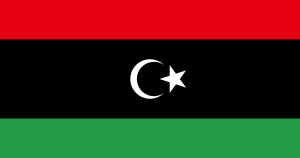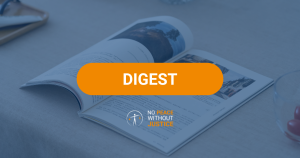Brussels-Rome, 4 February 2021
No Peace Without Justice (NPWJ) welcomes last week’s judgment in the Dominic Ongwen case at the International Criminal Court (ICC), as a significant step towards justice and accountability for thousands of victims of the most atrocious and widespread crimes committed by the Lord’s Resistance Army (LRA) in Uganda.
The judges found that Ugandan child soldier-turned-Lord’s Resistance Army (LRA) commander Ongwen was guilty of 61 counts of war crimes and crimes against humanity perpetrated in the early 2000s, including murder, torture, persecution, pillaging and the conscription, enlistment or use of children under the age of 15 to participate in the hostilities. The judges also convicted Mr Ongwen for rape, sexual slavery, forced marriage and forced pregnancy, which represents a significant advancement in the international recognition of the gravity of sexual and gender-based crimes committed in conflict situations as well as the diverse ways in which those crimes can be committed. NPWJ particularly welcomes these findings as representing the broad range of experiences of victims in the conflict and hopes that the recognition of these acts as crimes brings some measure of redress for those victims.
On Mr Ongwen’s individual criminal responsibility, we are in two minds. On the one hand, we agree that prior abuse cannot be a “get out of jail free” card for perpetrators, whether at the domestic or international levels. In a legal first, the judges rejected Mr Ongwen’s claim that he did not bear criminal responsibility because he suffered from a mental defect, or was acting under duress, due to the fact that he was abducted at an early age by the LRA and forced to become a child soldier who rose through the ranks. Instead, the judges found that the crimes for which he was convicted were committed by Mr Ongwen as a fully responsible adult and of his own free will, as a senior and fervently committed commander of the LRA between 2002 and 2005. On the other hand, it is well documented that child soldiers often become the product of their environment, particularly when they are in the situation in which Mr Ongwen found himself: abducted during their most vulnerable years, particularly impressionable and forced to commit acts of unspeakable brutality. While not all child soldiers go on to commit atrocities, the finding that Mr Ongwen did not suffer from a mental defect seemed to be based mainly on a perceived lack of credibility and errors by the defence expert witnesses and the mental disorders from which they claimed Mr Ongwen suffered. While this may be in part because Mr Ongwen refused to be examined by prosecution experts, it seems counter-intuitive that there could be no impact on Mr Ongwen’s mental capacities, at least in his ability to distinguish right from wrong. At the very least, it leads us to wonder how this might be approached in future cases. What is fairly certain is that this judgment will be appealed and we hope that some of these uncertainties and ambiguities will be clarified at that time.
In the meantime, NPWJ hopes this decision will deliver a sense of justice and provide redress for the 4,000 victims who participated in the case and look forward to accountability also being extended to the thousands of other victims of the reign of terror unleashed by the LRA against the people of northern Uganda and its neighbouring countries for more than two decades. NPWJ urges all States to take all adequate actions to secure the arrest of the other LRA leaders still at large, Joseph Kony and Okot Odhiambo, as well as all other ICC fugitives so that they may be brought to justice.
For further information, contact Alison Smith, International Justice Director, on asmith@npwj.org or Nicola Giovannini, Press & Public Affairs Coordinator, on ngiovannini@npwj.org org.




